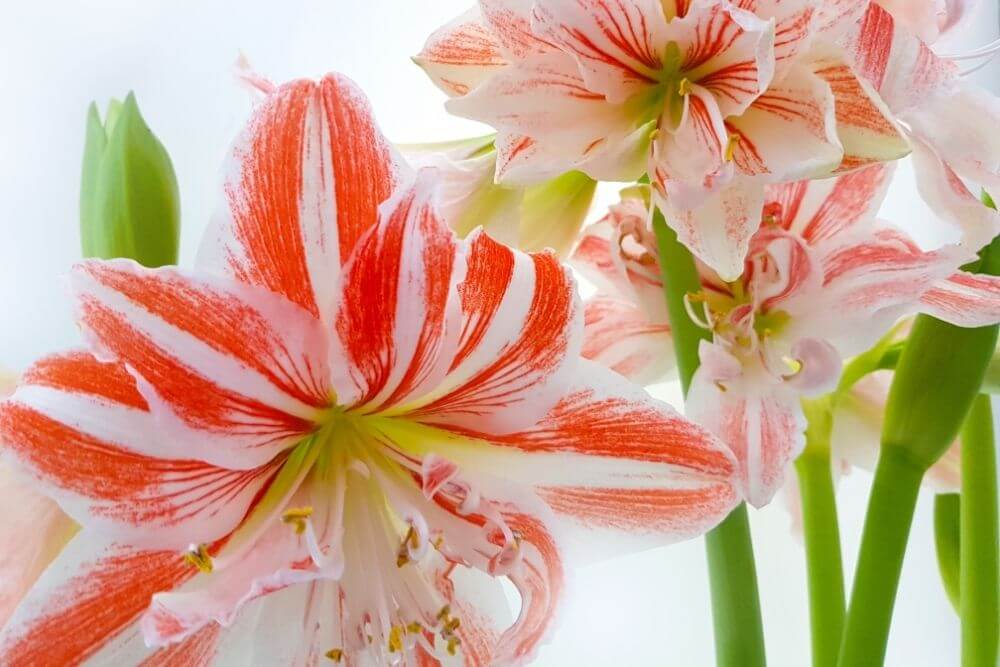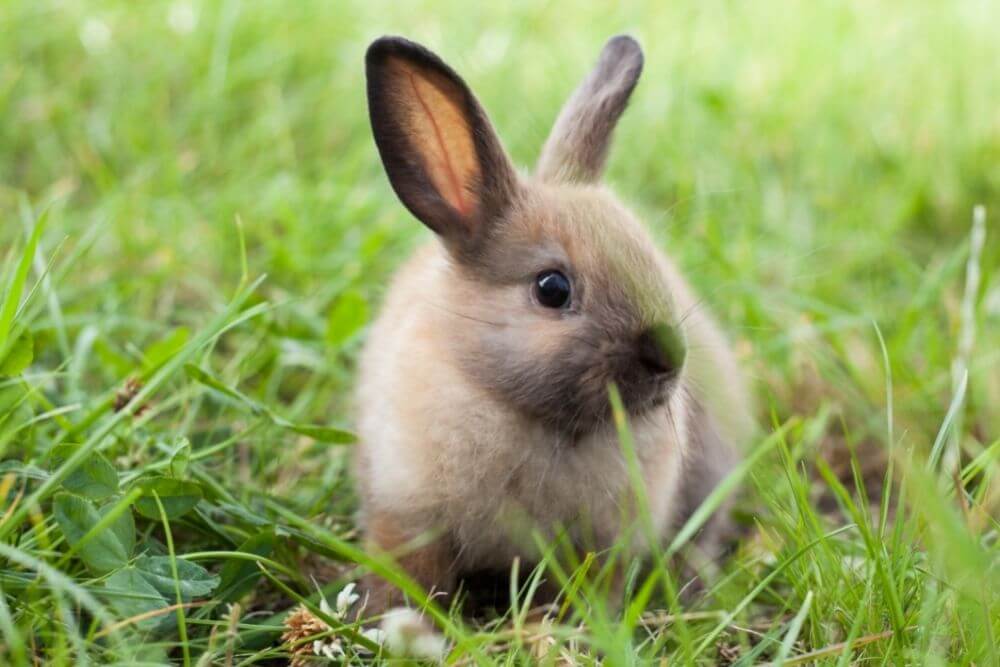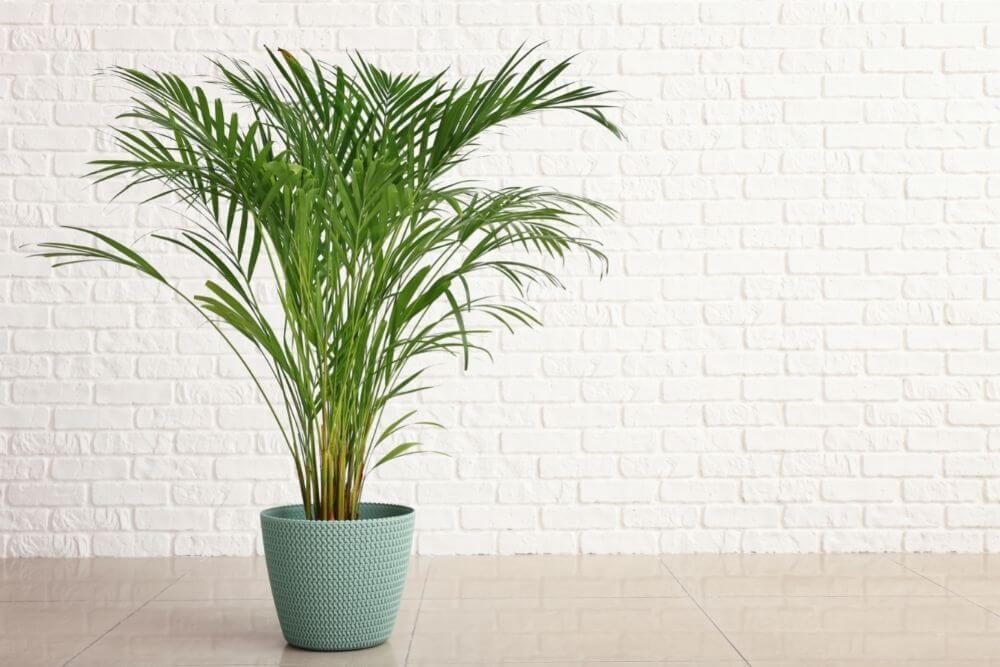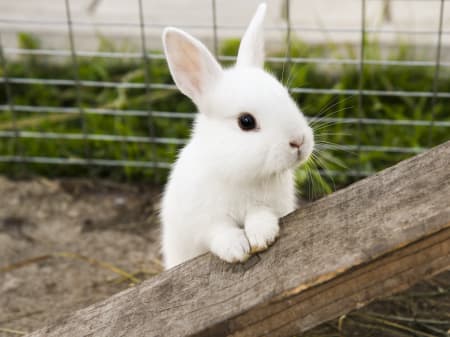Many people have a pet rabbit and orchids as houseplants. After all, orchids are one of the most popular houseplants in this country with their colorful flowers.
If the rabbit has access to the orchids during exercise, the question arises: are orchids toxic to rabbits?
Orchids can be mildly toxic to rabbits. Small amounts of consumed plant parts are usually safe for the animal, but larger doses could cause symptoms of poisoning.
That was just the short answer to the question. Together we will find out what you can do if your rabbit has nibbled on a poisonous plant. I’ll also show you which houseplants are still poisonous and which ones you can put rather safely within your rabbit’s reach.
Contents
Orchids can be toxic to rabbits
Orchids are also known as queens of the plant world. The flowers are beautiful and extremely decorative due to their whimsical shapes and colors.
There are over 30,000 species of orchids and it is not sufficiently researched whether there are highly poisonous species among them. However, all commercially available orchid species are only conditionally poisonous.
The toxicity of the most popular orchid species is roughly comparable to that of a nutmeg. If a rabbit nibbles just a little on the plant, it usually does not pose a problem. Larger amounts, however, can be dangerous.
The concentration of the poison is unevenly distributed
The weak poison of orchids is mainly alkaloids. The concentration is not the same in all parts of the plant. In the plant, the toxins are mostly in the tuber and in the roots.
My rabbit has nibbled on an orchid
If your rabbit ate just a little bit of an orchid, this should not be a cause for concern. As long as the damage is not too severe, the animal and the orchid will recover.
However, the nibbled leaves will not grow back, it is recommended to cut off the nibbled areas of the leaves with sterilized scissors.
The rabbit should not suffer permanent damage. Even larger amounts of eaten plant parts should not be fatal to the animal, but may cause symptoms of poisoning.
The most common symptoms of mild poisoning are digestive symptoms such as diarrhea and a noticeable thirst. However, you should accompany the animal to the veterinarian even if the poisoning is mild.
Poisonous houseplants for rabbits
Rabbits have a natural tendency to nibble on greenery. In doing so, they do not always know whether the plant in question is poisonous or not. The supposedly tasty meal can quickly have dire consequences for the animal.
The risk of your rabbit nibbling on poisonous plants is greater outdoors in an outdoor enclosure than indoors, but dangers can lurk indoors as well.

To help you protect your pet from danger, here is a list of plants you should never put within your rabbit’s reach:
- Aloe vera
- Cyclamen
- Amaryllis
- Australian flame tree
- Avocado
- Birch fig
- Blue passion flower
- Bow hemp
- Christ thorn
- Christ palm
- Dieffenbachia
- Dragon tree
- Ivy aralia
- Ivy
- monocot
- Elephant foot
- Elephant ear
- Window leaf
- Ficus
- Flamingo flower
- Flamingo
- Violin fig
- Lucky bamboo
- Rubber tree
- Guzmania
- Hook lily
- Haworthia
- Deer’s tongue fern
- Hydrangea
- Hyacinths
- Iresine
- Coffee tree
- Cocoa tree
- Caladia
- Cardboard paper palm
- Climbing fig
- Clive
- Cob thread
- Coral tree
- Coral berry
- Coral moss
- Croton
- Lampion flower
- Madagascar Palm
- Madagascar jasmine
- Nettle Beautiful
- Palm fern
- Bird of paradise flower
- Arrow leaf
- Philodendron
- Porcelain flower
- Purple tute
- Ray arable
- Tillandsia
- Poinsettia
- Desert rose
- Yucca Palm
- Indoor aralia
- Indoor calla
Even though the list is already quite extensive, it does not include all poisonous plants. Before placing any houseplant within your rabbit’s reach, be sure to find out very carefully if it could harm your pet.
Poisoning in rabbits
Rabbits’ stomachs do not have the muscles to contract. So rabbits cannot vomit if they have ingested something spoiled or poisonous, such as by nibbling on poisonous houseplants.
Similar to rodents, they cannot simply excrete the poison again. And even substances that are harmless to us humans can already harm rabbits.
While we can help prevent poisoning by removing poisonous plants from the animal’s reach, there are other sources of danger lurking for the animal.
Among the many causes of poisoning in rabbits, these are the most common:
- Nibbled poisonous plants
- Feeding with unfamiliar green forage
- Moldy feed, hay, or bedding
- Heavy metals, such as from nibbling on painted objects
- Incorrectly applied medications
- Too high doses of cleaning agents
Even foods that are well tolerated by us humans can be toxic to rabbits. Please find out beforehand which foods you can feed your pet in good conscience.
Precautions
You should not let your rabbit run unattended in the garden for long periods of time, even if the area is well fenced off. There is too great a risk that falling leaves and fruit could be harmful to the little animal.

In the wild, it is extremely rare for rabbits to poison themselves on plants. After all, the animals have evolutionary instincts that they use to choose their food.
However, these instincts reach their limits when the animal encounters non-native plants, such as exotic houseplants, or unfamiliar shrubs in the garden.
Therefore, regularly check on the animal during the outdoor run. Signs of poisoning usually show up promptly after ingestion.
If your rabbit runs indoors, cordon off the area well and remove any potentially dangerous objects the animal may have access to.
Symptoms of poisoning
Even if you take good care, a pet may gnaw on poisonous plants or other harmful items. Symptoms of poisoning may include:
- Bloat
- Diarrhea
- Fever
- Cramps
- trembling
- Fatigue
- pupil change
- bloody feces
- strong salivation
- noticeable thirst
- hasty breathing
If your rabbit has eaten a poisonous plant or other toxin, please follow these tips.
What should I do if my rabbit has nibbled a poisonous plant?
If you suspect that your rabbit has eaten something poisonous, you should contact a veterinarian immediately. Please act very quickly in this case, as any delay could result in permanent damage or, in the worst case, death.
Please do not attempt to treat the animal independently and do not administer any medications approved for humans, even in an emergency!
The veterinarian will need information from you to facilitate treatment. Where has the animal been staying? What has it been eating?
If possible, you should bring any eaten plant parts or the suspected source of the poison to help him diagnose the problem.
What plants are safe for rabbits?
It is best to keep any houseplants away from rabbits. This is because even supposedly harmless plants can contain toxins for the animal, such as those caused by chemical fertilizers.

However, there are some plants that are generally harmless to rabbits. Among others, these:
- Areca palm
- Bitterleaf
- Bubicorn
- Variegated nettle
- Chinese hibiscus
- Chrysanthemum
- Thick leaf
- Rotary fruit
- Three-master flower
- Ivy
- Maidenhair fern
- Money tree
- Gerbera
- Staghorn fern
- Bellflower
- Gloxine
- Lucky clover
- Gold fruit palm
- Golden trumpet
- Green lily
- Hemp palm
- Camellia
- Cat grass
- Kentia palm
- Basket marante
- Mosaic plant
- Millbeckia
- Phoenix palm
- Rosette thick leaf
- Pubic flower
- Slanting plate
- Sword fern
- Hollyhock palm
- Sycamore maple
Please note that even supposedly non-toxic plants are not suitable for consumption. Store-bought flowers and plants are usually treated with pesticides or other chemicals that could harm your pet.
Better safe than sorry
Even though rabbits use their sense of taste and smell to avoid potentially dangerous plants, we should not rely on them completely.
It is better to remove sources of danger from the rabbit’s area in advance to prevent poisoning from occurring in the first place.
Not only poisonous plants pose a danger, but also spoiled or unsuitable food, cleaning products, incorrectly applied medicines and other toxins can cause harm to the animal.


